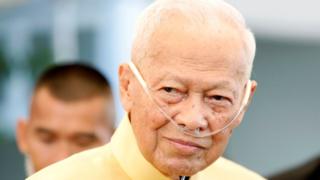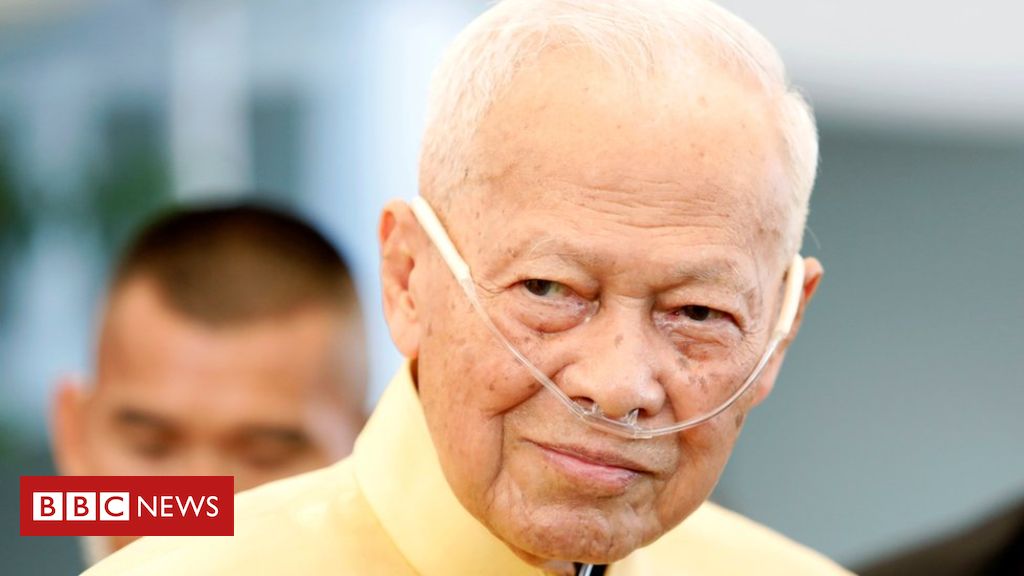 Image copyright
Image copyright
Reuters
Prem Tinsulanonda was Thailand’s 16th prime minister
Thailand’s former prime minister and royal confidante Prem Tinsulanonda, one of the most influential figures in modern Thai politics, has died aged 98.
The former army general, who served as prime minister from 1980 to 1988, died in a Bangkok hospital on Sunday.
The most trusted advisor of late King Bhumibol Adulyadej, Prem helped to cement the military-monarchy bond.
He is widely believed to have been instrumental in the 2006 coup against then Prime Minister Thaksin Shinawatra.
Interim House Speaker Chai Chidchob called on Thailand’s parliament to “stand for a moment in memorial” on Sunday morning.
Aides of the influential politician said his death was caused by heart failure, according to local media reports.
Who was Prem?
Prem was born in southern Thailand in 1920, 12 years before absolute monarchy was abolished.
He graduated from the country’s top military academy and went on to serve as army chief before moving into politics.
Image copyright
EPA
Prem spoke out in support of junta leader Prayuth Chan-ocha
In 1980, he became Thailand’s 16th prime minister and held the position for eight years.
Prem was a confidante of the late King Bhumibol and worked as president of the powerful Privy Council of royal advisors for more than two decades.
Following the king’s death in October 2016, he briefly served as the country’s regent.
His influence continued to be felt up until his death, as he played a key role in the wedding and coronation of King Maha Vajiralongkorn earlier this month.
Military-monarchy relationship
Observers say the former commander had unparalleled influence over Thailand’s royalist military, which has staged 13 coups since 1932.
He is believed to have played a key role in the 2006 coup that ousted Mr Thaksin.
In more recent years, he spoke publicly in favour of Prayuth Chan-ocha, who led a second coup against a pro-Thaksin government in 2014.
His death comes as Thailand prepares to form a new government following the first elections since the coup five years ago.
“He will be remembered as an ardent royalist who helped to cement the monarchy’s place at the very top of modern Thailand’s power structure,” said the BBC’s South-East Asia correspondent Jonathan Head.
